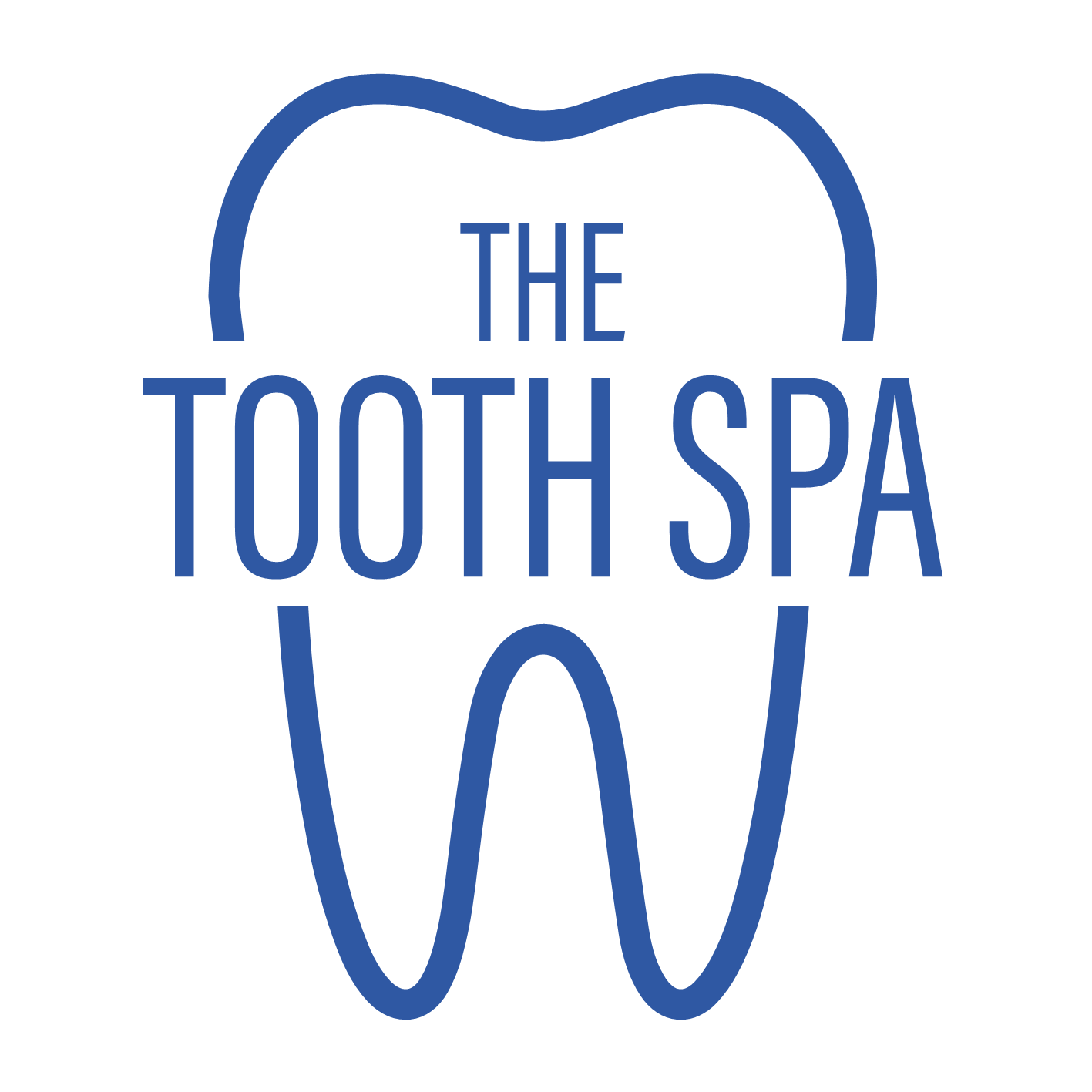Are you experiencing severe mouth pain? What about bleeding? Perhaps you’ve experienced a recent injury to your face or mouth? There are a number of reasons why you may seek the services of an emergency dentist, just as there are many problems that are considered a dental emergency. While some are more severe than others and require a visit to A&E rather than the services of an emergency dentist, there are many problems that can be solved by visiting a qualified dental office and being treated by a professional. For this article, we will be looking at more common emergency dental issues that can be treated by an emergency dentist.
Common dental emergencies can be prolonged tooth or mouth pain, broken or knocked out teeth, lost fillings, or infections. Issues related to chipping or exposed nerves can also be covered by an emergency dentist using emergency veneers and crowns. Here at The Tooth Spa, we’re committed to providing outstanding emergency dental services to our patients in Leeds and the surrounding area. For more information on what defines a dental emergency, keep reading below!

Think You’re Having a Dental Emergency?
The most common reason most people end up visiting an emergency dentist is due to unexplained, prolonged pain in the teeth and gums, which can interfere with your everyday life. However, there are some other issues that can send you running into your dentist’s office and seeking an emergency appointment. While we will go into more detail on these ailments further below, some of the things that qualify a trip to the emergency dentist includes:
Severe Dental Pain: Whether you’re looking for a way to relieve the pain, or you require a filling or tooth extraction, this can be dealt with at your emergency appointment – especially if the cause is something that requires urgent care.
Uncontrolled Bleeding From the Mouth: If you are bleeding from the mouth, either through injury or tooth trouble, and you cannot stop it, it’s vital that you pay a visit to an emergency dentist to have it stopped by a qualified dentist.
Knocked-out Tooth: Injury or a strong impact can cause your tooth to come out, which could lead to damage that may not initially be evident. It’s important to make an emergency dental appointment to make sure no serious damage has been done.
Infection: An infection in the mouth can turn life threatening quickly, leading to abscesses that can cause tooth loss, or even something more serious like an infection in the blood. An emergency dentist can drain the abscess to prevent further issue.
There are many other things that could easily be considered a dental emergency, and our team at The Tooth Spa have come together to create this list of problems that can be treated by a professional emergency dentist. Below are some of the other common reasons you may visit an emergency dentist:
Intense Toothache
If you have a toothache, the first thing to do is determine whether you have an actual dental emergency. If a toothache is accompanied by swelling in or around the mouth or face, it can indicate that the infected tooth has caused an abscess, which will require immediate treatment from a dentist. A toothache that comes on quickly and is accompanied by other symptoms such as vomiting, high fever or neck stiffness may be a sign of an infection in your jawbone, which could also require immediate treatment by a dentist. Toothaches can be caused by many things, such as decay and gum disease. However, toothaches are often the result of something simple such as a cavity or cracked tooth that needs to be fixed by your dentist. While the pain may be severe, it’s important not to panic and make an appointment with your dentist as soon as possible.
Painful Swelling
Swelling in one area of your body may mean that an abscess has formed there; an abscess is a pocket of pus that forms when tooth infection spreads under the skin’s surface. An abscess can cause pain and tenderness and needs attention from a professional emergency dentist. An infection in your mouth can cause you to taste metal. If you have an infection, it could be caused by bacteria, viruses or fungi. These infections can lead to other problems, such as cavities, gum disease and tooth decay.
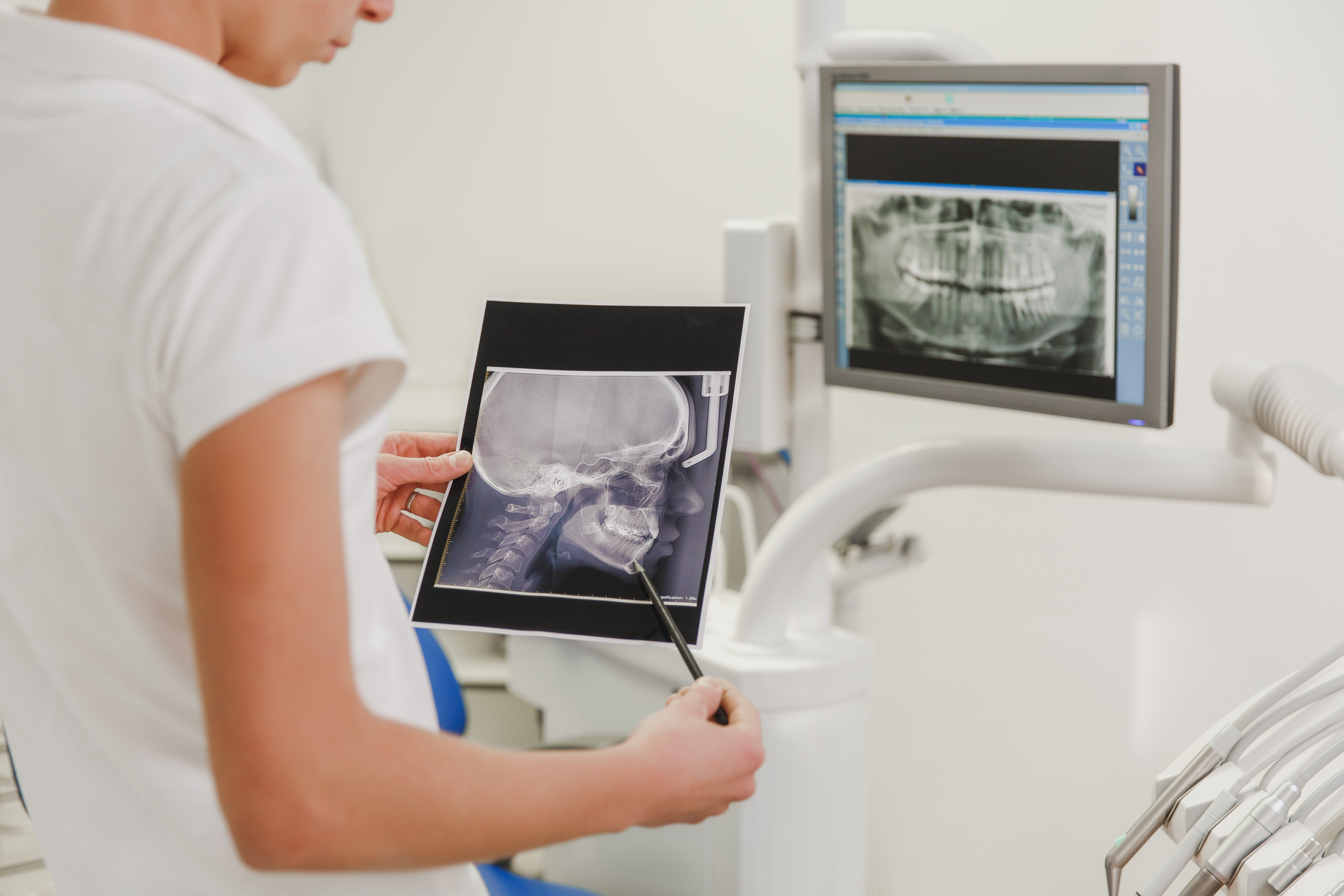
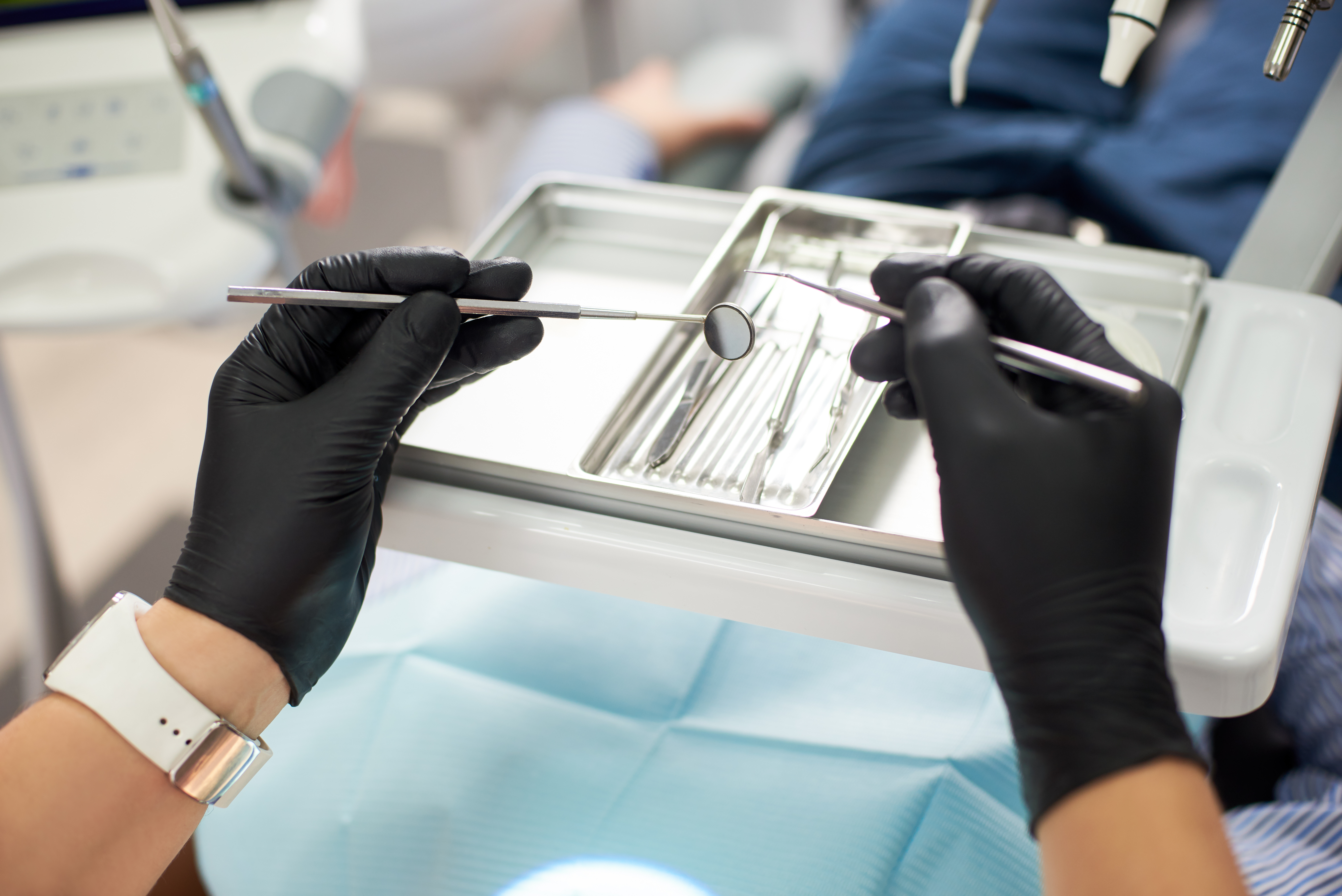
Jaw Pain
If your jaw hurts after eating, or if you have any pain when chewing food, then there is a good chance that you have an infection in one of your teeth. Infections are very common and they can be treated with antibiotics. It’s important to see your dentist right away so that we can make sure that the infection isn’t spreading and causing further problems. Even if an infection isn’t the cause of your pain, it is still important to be properly assessed by an emergency dentist if the pain is ongoing or affects your everyday life.
Temperature Sensitivity
Sensitivity to hot and cold temperatures in your mouth could mean that one of your teeth has been traumatised during an accident or other incident. It could also mean that you have a cavity that needs attention right away before it gets worse and causes more damage to the tooth’s structure and nerve endings. If you notice sensitivity in one area of your mouth only (for example, when eating ice cream) but not anywhere else, this is a good indication of an early cavity forming on one of your teeth. If left untreated for too long, this can cause irreversible damage that requires root canal treatment or extraction.
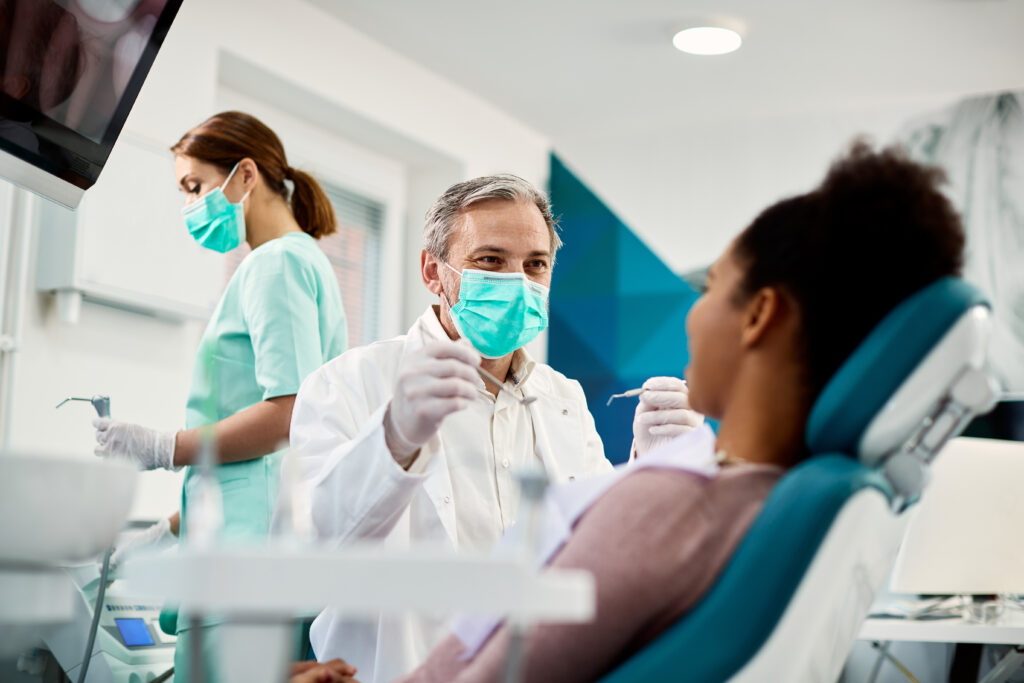
What To Do in a Dental Emergency
If you think you have a dental emergency and need to see a professional emergency dentist for help, there are a few things you should do to make sure your issue does not get worse. Whether you are in intense pain, or you have bleeding or damage that impacts your day to day life, here at The Tooth Spa, we recommend following our guide below to make sure your emergency dental appointment goes as smoothly as possible:
Step One:
The first thing to do is make an appointment with a dentist to be assessed for any problems. With the pressure the recent Covid-19 pandemic and underfunding of NHS services has put on many dental practices, you may have to wait a few weeks to see an emergency dentist who can help you. Luckily, at The Tooth Spa, we offer an affordable private dental service to our patients in Leeds and the surrounding area.
Step Two:
Make sure that your problem doesn’t get any worse while you wait for your appointment. You can do this by making sure that you’re taking good care of your teeth and gums: keep up with brushing and flossing every day and try to eat more easily-digestible foods so that any remaining food won’t collect in your mouth and irritate the area around the infected tooth. Also make sure that in cases of breaks or empty sockets that food debris is cleaned away to avoid causing pain or discomfort.
Step Three:
When you make it to your appointment, it’s important to be honest with your dentist about the cause of your issue. Whether it has occurred via activity such as drug use, don’t worry, we take the confidentiality of our clients extremely seriously and what is disclosed with your dentist will be kept with the clinic. During your appointment, you may be asked questions that will help your emergency dentist treat you effectively.
Step Four:
After being treated by an emergency dentist, we highly recommend following any advice they offer. This can include taking prescribed medications, keeping the area of an extraction clean, and following up with your dentist where required. Future issues can be avoided as long as you take the advice of your dentist, they are the experts and understand oral hygiene and health to make sure you can return to your life free from dental issues.
Emergency situations need to be treated as soon as possible. If you’re experiencing any of these symptoms, you should call your dentist immediately and request an appointment. Don’t wait until the next day—don’t even wait until the end of the workday. The longer you wait, the more risk there is that infection or other complications will occur. If your dentist’s office is closed when you call, contact 111 and ask them to connect you with a dental clinic that can fit you in right away.
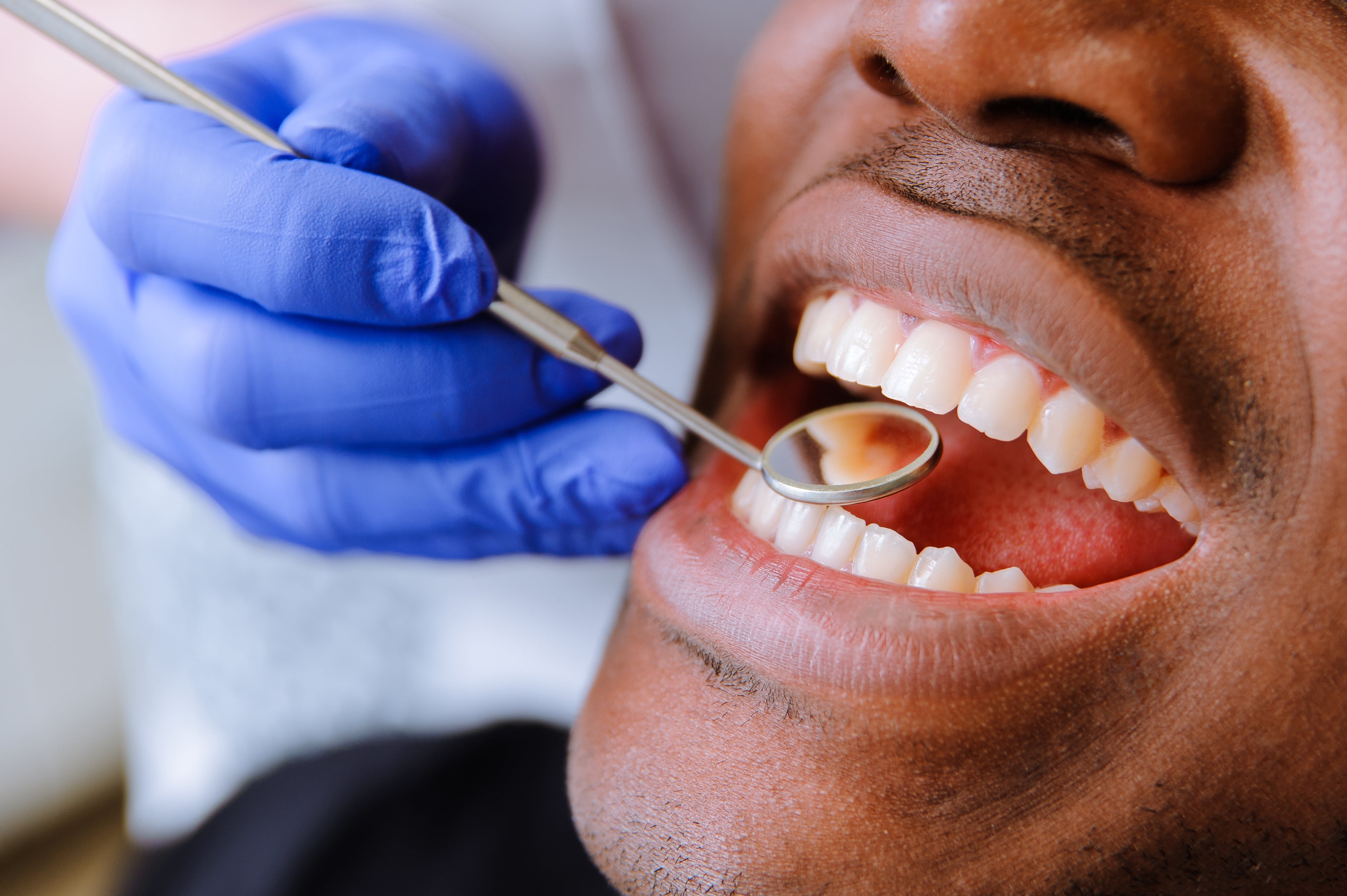
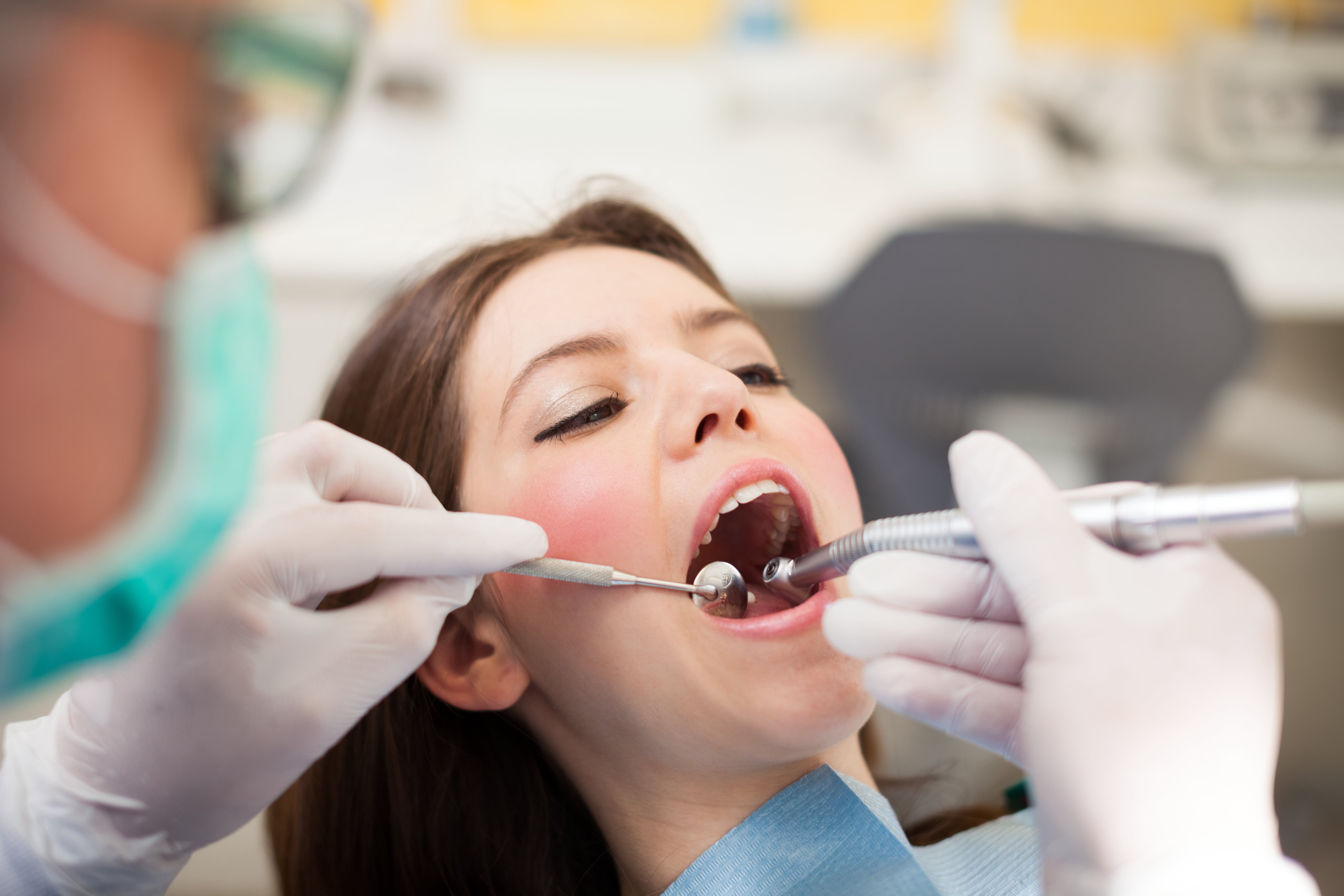
NHS or Private Emergency Dentist?
If you need the services of an emergency dentist, you may be wondering the pros and cons of going to either an NHS or private practice. If a private emergency dentist is something that is a feasible expense for you or your family, we can’t recommend becoming a client at an emergency dental practice. However, while the NHS may be a good option for those who perhaps don’t have the money to pay for private dental treatment, it has many flaws that should certainly be considered.
The waiting list to be seen by an NHS dentist seems unending, especially when you look towards Northern England, where many dental practices simply do not have the means or space to take on new NHS patients, and so many are given little choice but to go private or wait years for dental treatment. Meanwhile, private practices have an abundance of slots available for new patients, meaning you won’t have to wait a long time before getting an emergency appointment. While NHS practices are faster when it comes to giving emergency appointments, you may still sometimes have to wait days, or even weeks to be seen, which feels like a very long time when you’re in pain.
Additionally, NHS practices aim to see as many people as possible in a day, which drastically reduces the level of service patients receive. It’s never nice feeling like you’re being rushed, especially when you’re experiencing one of the many issues that would drive you to an emergency dentist. In fact, this need to see more patients in a day can lead to misdiagnosis or serious issues being overlooked until they develop into something worse later down the line.
While emergency dental treatment from a private practice can be pricey, like with everything else in life – you get what you pay for. If you want high quality, individualised service to get fast relief for dental problems, we couldn’t recommend an experienced, private dental practice more!
When To Visit A&E?
In recent years, we have seen the impact that misuse of services like Accident & Emergency can have on the NHS in general. With high waiting times to be seen, we highly recommend only going to A&E if you have an actual emergency – otherwise contacting your emergency dentist will usually suffice. Some of the dental issues that may require a trip to A&E includes:
Sudden, Severe Pain: If you’ve ever experienced tooth pain, you know it can be extremely difficult to focus on anything but the pain. Unfortunately, everyday tooth pain doesn’t qualify as a reason to go to a&e as this issue can typically be solved by an emergency dentist. However, if the pain is very intense or being caused by something else, such as broken teeth or a growing abscess, it’s important that you get seen by the hospital as soon as possible.
Heavy Bleeding: Depending on the severity of the bleeding and whether or not it can be stopped, a visit to a&e may be necessary to keep your overall health in check. It’s important that any continuous bleeding be stopped as soon as possible to avoid anaemia, hypovolemic shock, or even death. Hospital personnel can offer a range of treatment options to stop bleeding and to encourage blood to clot naturally. If more invasive intervention is required to make the bleeding stop, a hospital has access to a range of tools, equipment, and supplies to help you.
Facial, Mouth, or Tooth Injuries: Injuries are a common occurrence in a&e and the medical staff who work there have seen everything there is to see. There are many ways you can cause significant damage to your teeth, mouth, and face that require urgent medical attention to resolve. Whether this is through a sporting injury or an accident at work, it’s essential that any serious injury to the face is quickly assessed by trained medical professionals in a&e.
For more information, contact The Tooth Spa today!
Think you may have a dental emergency? Don’t hesitate to get in touch with our team and arrange an emergency appointment. If you would like more information on what classes as an emergency that a dentist can deal with, give our team a call! We’re more than happy to talk you through everything you need to know!
Want to know what an emergency dentist can do? Check out our blog on What Can an Emergency Dentist Do now! Alternatively, if you’re interested in cosmetic dental treatments, we also offer scale and polish services as well as tooth whitening, so contact us today!
